PHP Download Files and Log
Read more at https://www.phpclasses.org/package/11635-PHP-Serve-local-and-remote-files-for-download.html#2020-05-08-08:26:48
Football Type 2 celebrates the beautiful typography of the beautiful game – A look at the type used by football clubs from around the world.

Building Client-Proof WordPress Websites – Tips for building websites that can better prevent client mishaps.

Picks of the month: the best design events to catch (indoors) in May – There are fun events happening online, even if you’re still stuck in quarantine.

Color Theme Switcher – Learn how to add multiple color schemes to your website via CSS.

Morphing Gooey Text Hover Effect – Check out these incredible morphing effects that use SVG filters.
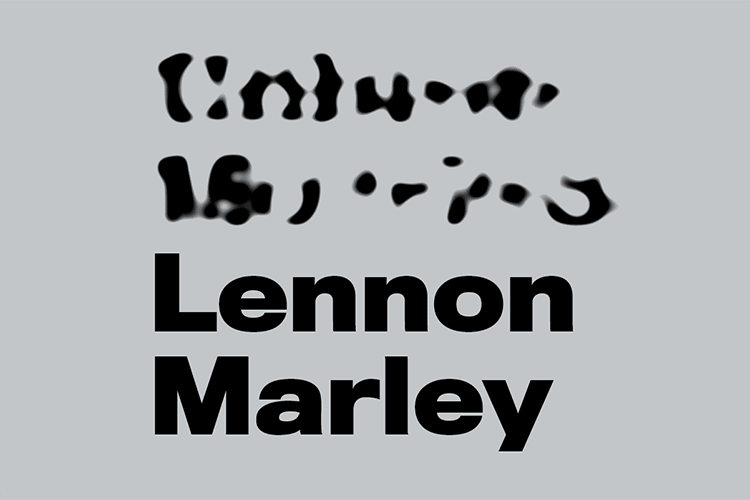
Free UXUI Doc Kit for Sketch/Figma – Create documentation for your team with this free kit, which features 236 symbols.

Alpine.js – Learn more about the JavaScript framework that’s used like jQuery, written like Vue, and inspired by TailwindCSS.
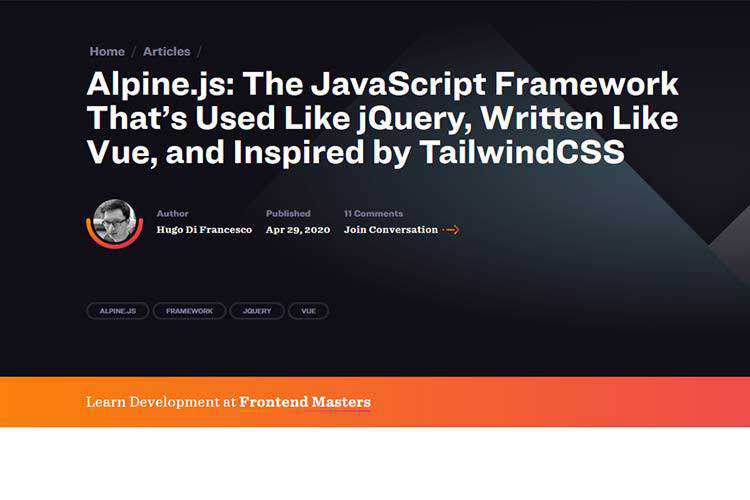
Best blog designs I want to steal everything from – Take a look at some of the sharpest blogs out there.

Design System Interview Questions – Things to ask stakeholders when building a design system for an organization.

A Long Time Ago: Code Snippets Inspired by Star Wars – Celebrate the franchise with these stunning code snippets. May the fourth be with you!

Faking 3D Elements with CSS – An example of how to create a 3D illusion with just two HTML elements and some CSS.

Using CSS to Control Text Selection – Some neat text selection behaviors that can aid in usability.
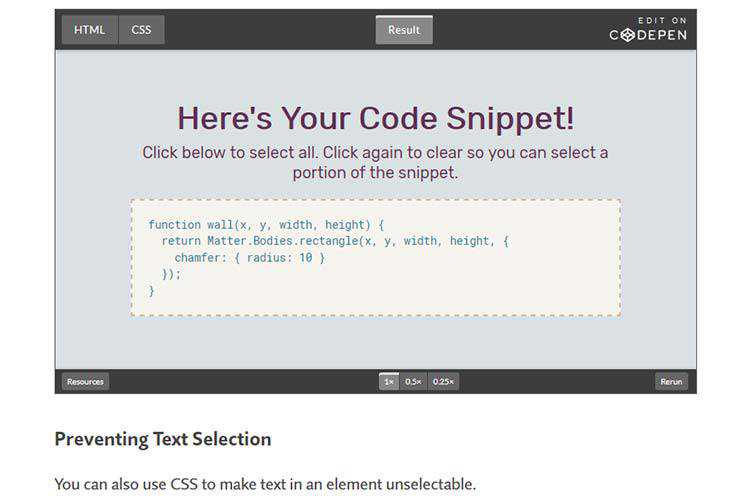
10 Beautifully Designed, Minimal & Name-Centric Business Cards – Gain inspiration from this collection of beautiful business cards.

Immersive Transition Effect – Grab a user’s attention with a scroll-based transition effect.

StyleStash – A Chrome browser extension that lets you inspect, edit and save any CSS element.
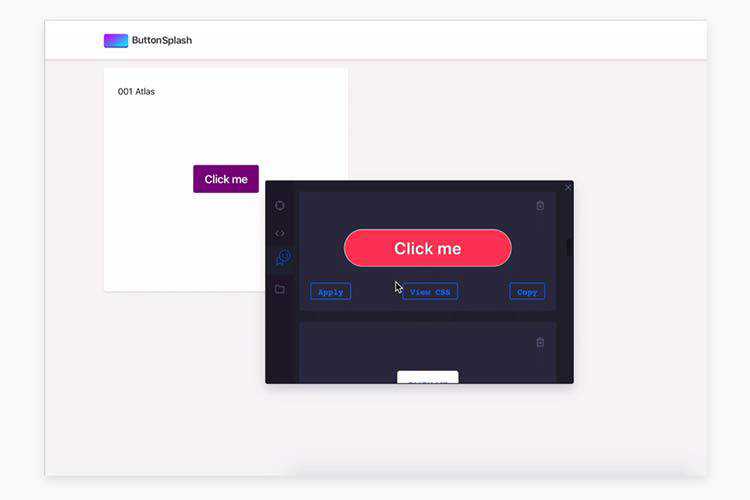
A Guide to Using Commercial WordPress Themes and Plugins – Tips for utilizing commercial software in a sustainable way for clients and devs.

coding.blog – A home for free, high-quality coding blogs that won’t try to sell you something.
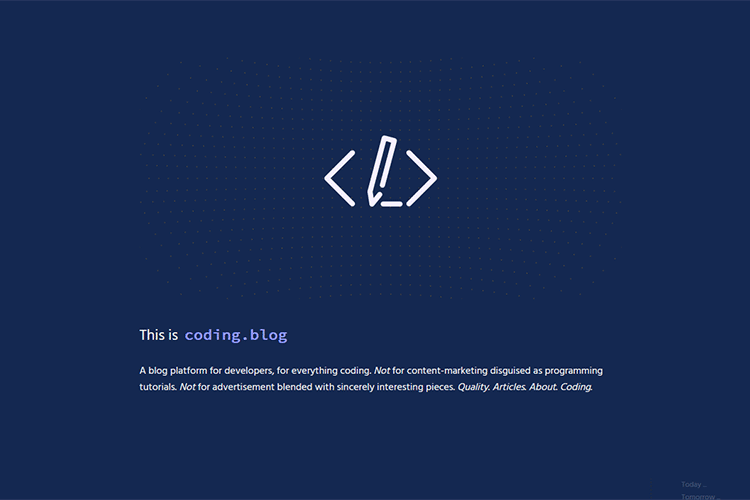
Teach Yourself Code – Learn with this free collection of curated video tutorials.

The post Weekly News for Designers № 539 appeared first on Speckyboy Design Magazine.
Here's what was popular in the PHP community one year ago today:
When the world seemingly changed overnight due to COVID-19, it was surreal. Maybe your surroundings looked exactly the same. Your to-do list contained the same projects. Even if things were completely different beneath the surface, it wasn’t easily recognizable.
Now that we’ve all had some time to process quarantines and widespread sickness, it’s starting to hit home. That is, if we and our loved ones are fortunate enough not to have fallen ill.
Personally, I’ve felt a wide range of emotions throughout this period of time. There’s worry and fear regarding the unknown. Gratitude for health and family – not to mention all of those people who are doing their part to save lives and help keep the world moving. Still, as uncertain as things are, it’s easy to feel a sense of despair.
While that’s understandable, it doesn’t have to be a 24/7 feeling. There are indeed some bright spots for those of us in the industry, if you know where to look. With that, here are some things we take solace in.
During a time when the need for accurate information is vital, web designers are playing a key role. We’re helping our clients reach their audience and keeping the world informed.
For the past couple of decades, the web has been replacing or serving as an addendum to the physical world. In a way, that has prepared us to pitch in during a crisis such as this.
That prep time has allowed us to have at least some infrastructure in place to adapt to the rapidly-changing needs of clients. The websites we manage can disseminate information, tie in with third-party services like social media networks and take online transactions. Each of these areas are proving to be crucial during a global pandemic.
This (hopefully) means that there’s no need to start from scratch. In many cases, it’s a matter of augmenting the systems we already have.
The ability to turn on a dime when it’s needed the most is something to be proud of. And each of us has our own role to play.

Businesses all over the world have been impacted by closings, modified hours and loss of revenue. Many have shifted strategies to try and stay afloat during the public health crisis. It’s a difficult situation and one that is likely to last into the foreseeable future.
Out of this uncertainty also comes opportunity. Web designers are in a position to help clients adapt to new ways of doing business. Those who have traditionally run their organization via offline methods will need help going online. Others will likely need to expand current online operations.
In addition, the unique circumstances may result in a new wave of startups. Companies will look to solve new problems that have surfaced and they’ll need an effective website as part of their efforts.
This isn’t to say that the sky is the limit. But if you have the right skillset, or are willing to learn, you could find yourself with a number of projects to tackle.

The web design industry itself is, as always, a bright spot. This is a community, not an everyone-for-themselves affair. That’s something to be very proud of.
Web professionals are continuing to share knowledge and advice. However, that has expanded beyond the typical programming and design tutorials. Some are sharing tips for getting through the pandemic and how to help clients navigate uncharted waters.
There is also a highly-personal element that seems to be missing from a lot of industries. Perhaps that’s because there are so many small businesses, solo entrepreneurs and self-taught individuals involved.
This lends itself well to a lot of situations, but especially a crisis. People are letting us into their homes (virtually, of course) and discussing their experiences. That is highly relatable – regardless of your age, gender or nationality.
The human element is part of what makes this a special community. It’s something we can all lean on, even when there’s chaos all around us.

Despite a challenging environment, those of us in the web design industry have plenty of reasons to be thankful. Maybe things aren’t the same, but there’s still an opportunity to thrive and be of service to others. That’s something not a lot of people can say right now.
Yes, there’s a heavy weight on everyone’s shoulders. But you don’t have to look far to find some positives.
The post Reasons to Be Thankful: Bright Spots for Web Designers appeared first on Speckyboy Design Magazine.
In this episode of "PHP Internals News" I talk with George Banyard (Website, Twitter, GitHub, GitLab) about an RFC that he has proposed together with Máté Kocsis (Twitter, GitHub, LinkedIn) to make PHP's float to string logic no longer use locales.
The RSS feed for this podcast is https://derickrethans.nl/feed-phpinternalsnews.xml, you can download this episode's MP3 file, and it's available on Spotify and iTunes. There is a dedicated website: https://phpinternals.news
Hi, I'm Derick. And this is PHP internals news, a weekly podcast dedicated to demystifying the development of the PHP language. This is Episode 52. Today I'm talking with George Banyard about an RFC that he's made together with Mate Kocsis. This RFC is titled locale independent floats to string. Hello, George, would you please introduce yourself?
Hello, I'm George Peter Banyard. I'm a student at Imperial College and I work on PHP in my free time.
All right, so we're talking about local independent floats. What is the problem here?
Currently when you do a float to string conversion, so all casting or displaying a float, the conversion will depend on like the current local. So instead of always using like the decimal dot separator. For example, if you have like a German or the French locale enabled, it will use like a comma to separate like the decimals.
Okay, I can understand that that could be a bit confusing. What are these locales exactly?
So locales, which are more or less C locales, which PHP exposes to user land is a way how to change a bunch of rules on how string and like stuff gets displayed on the C level. One of the issues with it is that like it's global. For example, if you use like a thread safe API, if you use the thread safe PHP version, then set_locale() is not thread safe, so we'll just like impact other threads where you're using it.
So a locale is a set of rules to format specific things with floating point numbers being one of them in which situations does the locale influence the display a floating point numbers in every situation in PHP or only in some?
Yes, it only impacts like certain aspects, which is quite surprising. So a string cast will affect it the strval() function, vardump(), and debug_zval_dump() will all affect the decimal locator and also printf() with the percentage lowercase F, but that's expected because it's locale aware compared to the capital F modifier.
But it doesn't, for example, have the same problem in the serialised function or say var_export().
Yeah, and json_encode() also doesn't do that. PDO has special code which handles also this so that like all the PDO drivers get like a constant treat like float string, because that could like impact on the databases.
How is it a problem that with some locales enabled and then uses a comma instead of the decimal point. How can this cause bugs and PHP applications?
Truncated by Planet PHP, read more at the original (another 17468 bytes)
In this episode of "PHP Internals News" I talk with George Banyard (Website, Twitter, GitHub, GitLab) about an RFC that he has proposed together with Máté Kocsis (Twitter, GitHub, LinkedIn) to make PHP's float to string logic no longer use locales.
The RSS feed for this podcast is https://derickrethans.nl/feed-phpinternalsnews.xml, you can download this episode's MP3 file, and it's available on Spotify and iTunes. There is a dedicated website: https://phpinternals.news
Hi, I'm Derick. And this is PHP internals news, a weekly podcast dedicated to demystifying the development of the PHP language. This is Episode 52. Today I'm talking with George Banyard about an RFC that he's made together with Mate Kocsis. This RFC is titled locale independent floats to string. Hello, George, would you please introduce yourself?
Hello, I'm George Peter Banyard. I'm a student at Imperial College and I work on PHP in my free time.
All right, so we're talking about local independent floats. What is the problem here?
Currently when you do a float to string conversion, so all casting or displaying a float, the conversion will depend on like the current local. So instead of always using like the decimal dot separator. For example, if you have like a German or the French locale enabled, it will use like a comma to separate like the decimals.
Okay, I can understand that that could be a bit confusing. What are these locales exactly?
So locales, which are more or less C locales, which PHP exposes to user land is a way how to change a bunch of rules on how string and like stuff gets displayed on the C level. One of the issues with it is that like it's global. For example, if you use like a thread safe API, if you use the thread safe PHP version, then set_locale() is not thread safe, so we'll just like impact other threads where you're using it.
So a locale is a set of rules to format specific things with floating point numbers being one of them in which situations does the locale influence the display a floating point numbers in every situation in PHP or only in some?
Yes, it only impacts like certain aspects, which is quite surprising. So a string cast will affect it the strval() function, vardump(), and debug_zval_dump() will all affect the decimal locator and also printf() with the percentage lowercase F, but that's expected because it's locale aware compared to the capital F modifier.
But it doesn't, for example, have the same problem in the serialised function or say var_export().
Yeah, and json_encode() also doesn't do that. PDO has special code which handles also this so that like all the PDO drivers get like a constant treat like float string, because that could like impact on the databases.
How is it a problem that with some locales enabled and then uses a comma instead of the decimal point. How can this cause bugs and PHP applications?
Truncated by Planet PHP, read more at the original (another 17465 bytes)